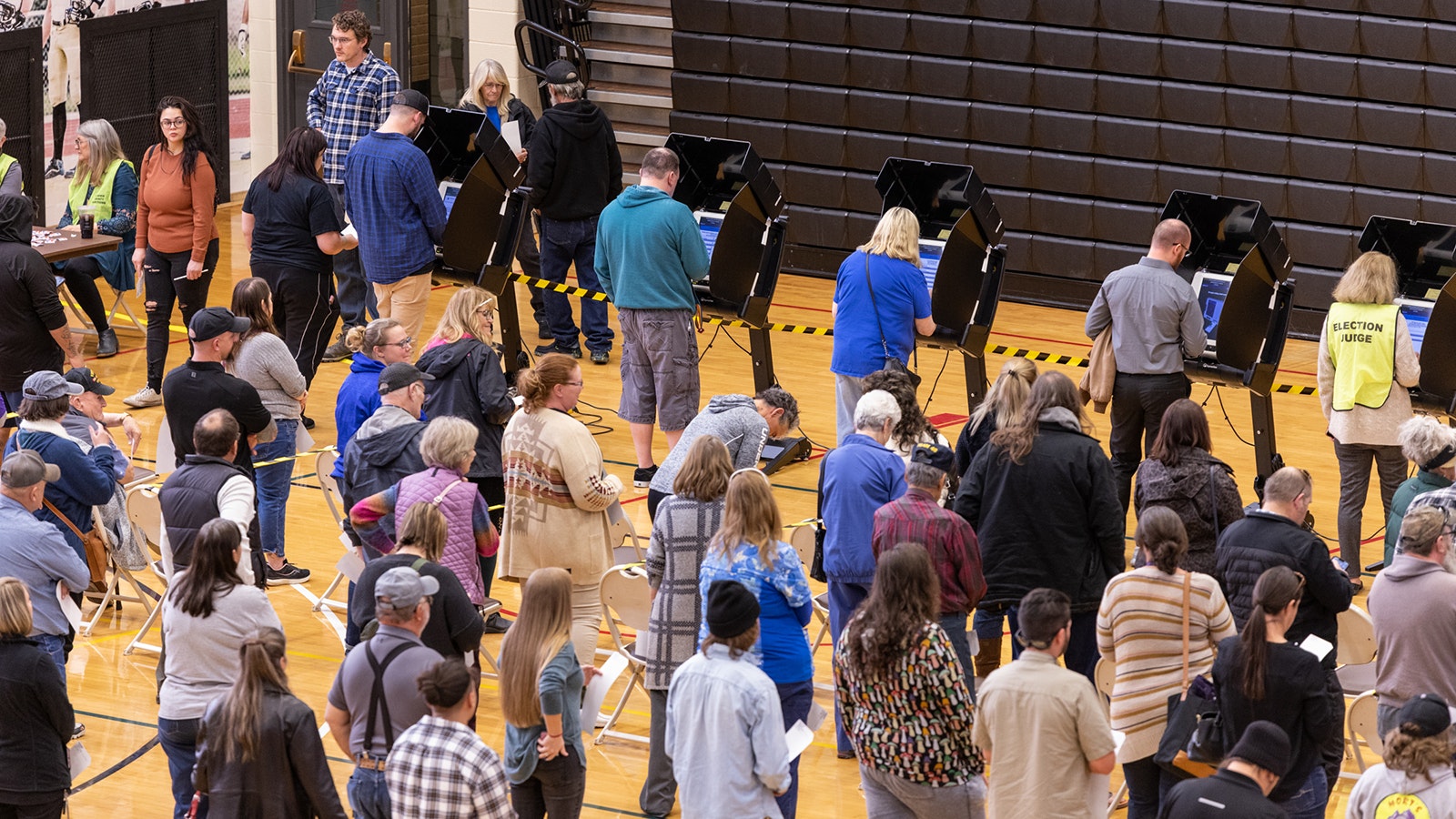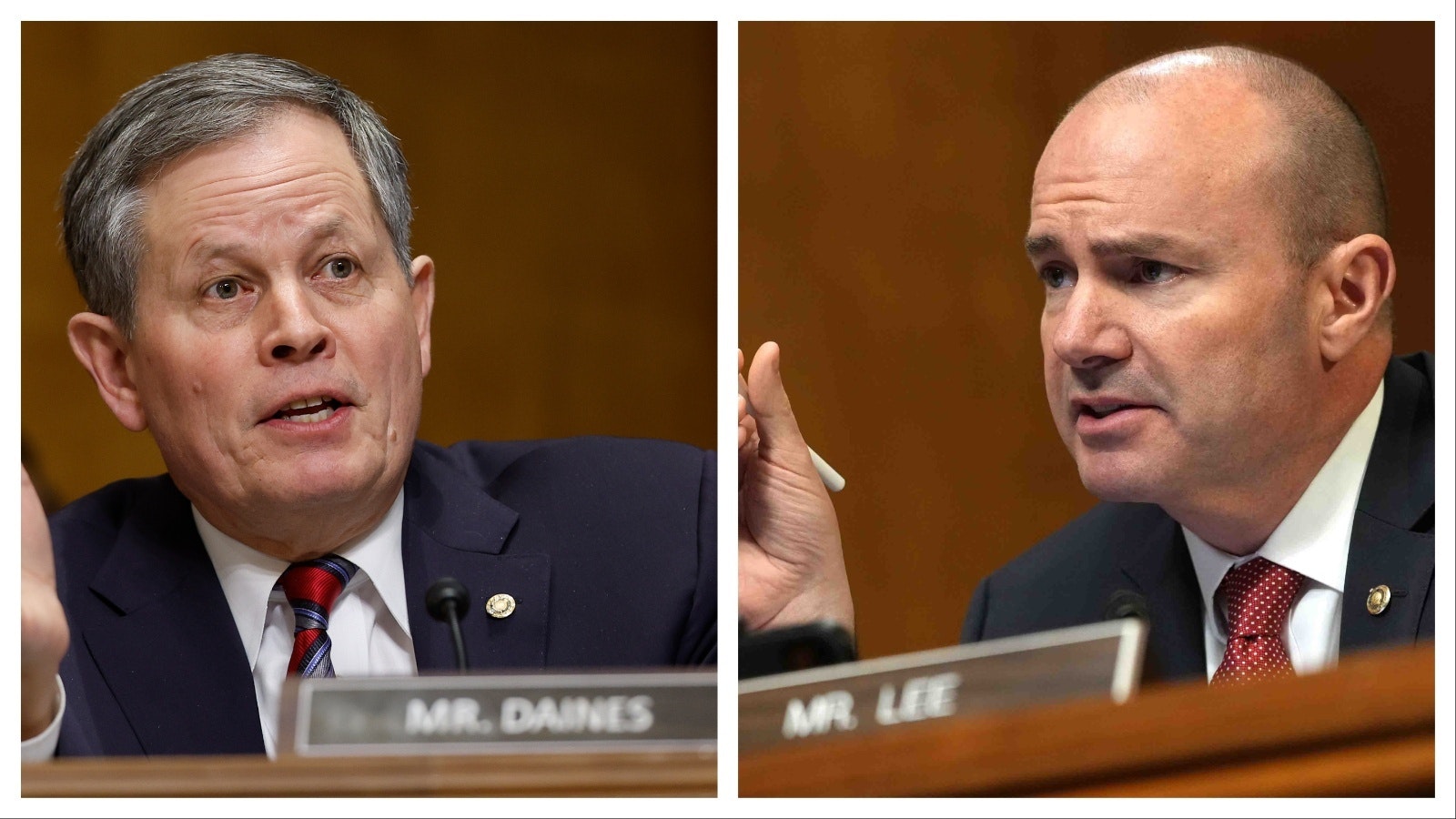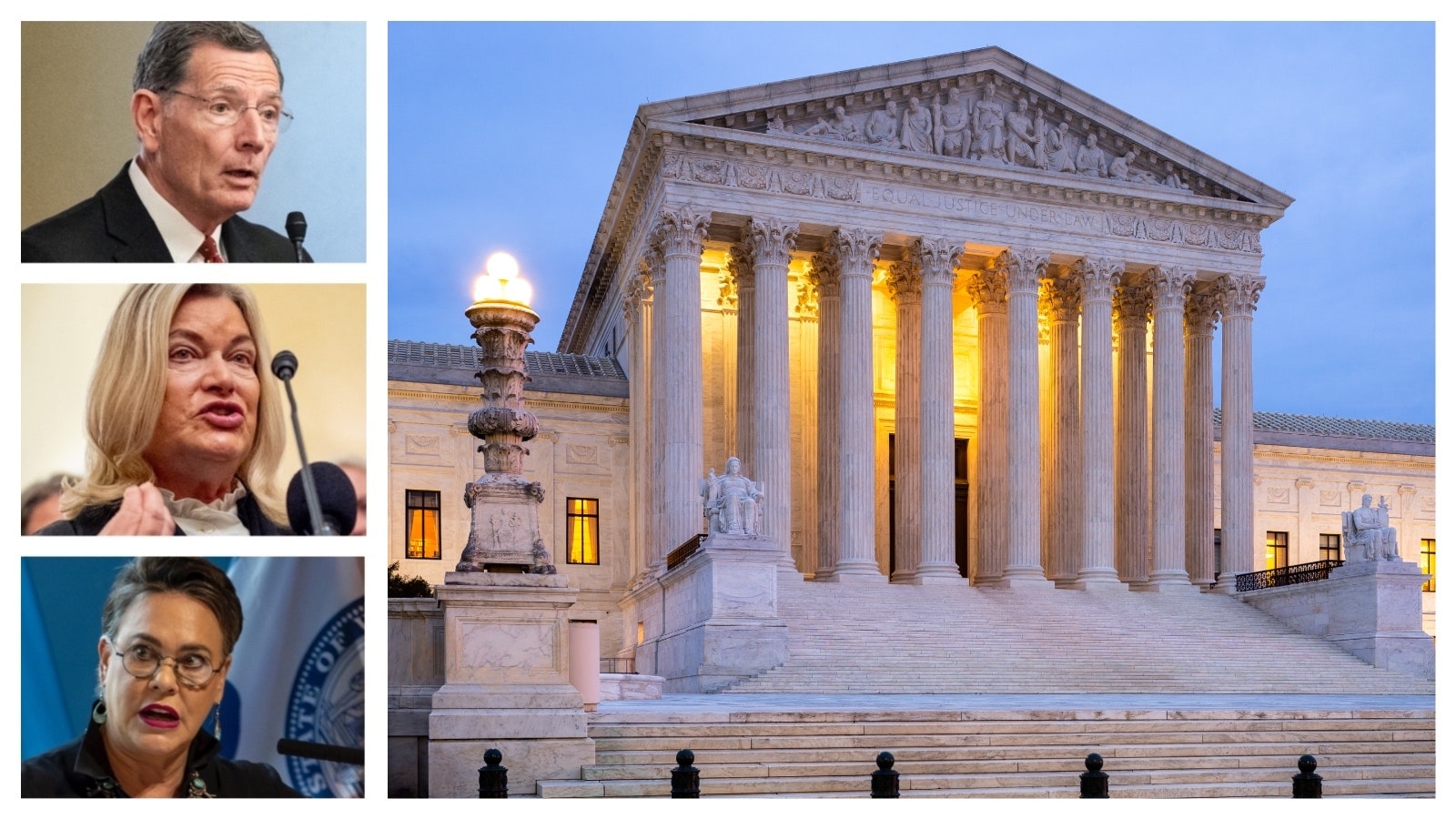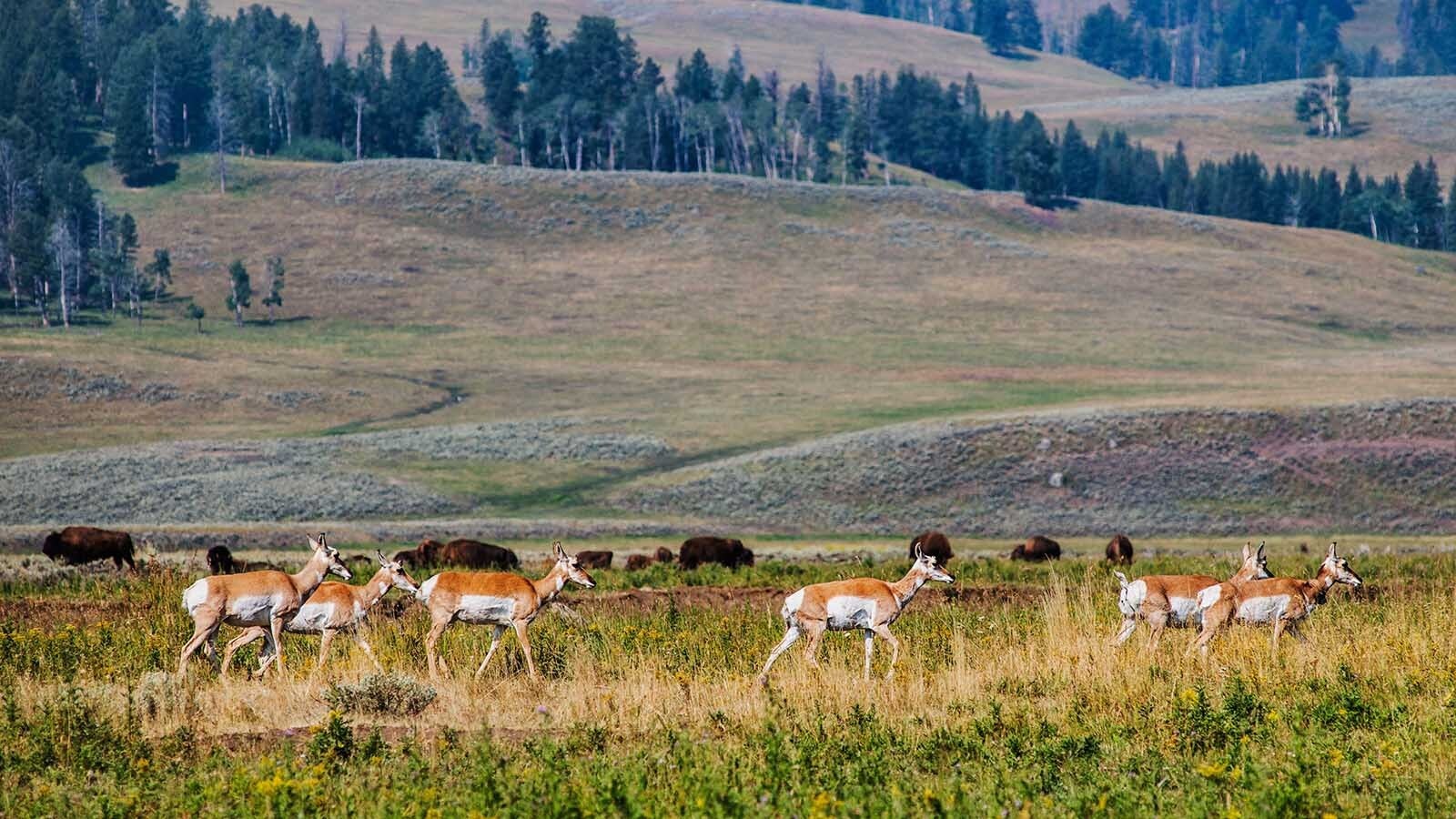During a Wyoming legislative committee meeting last week, Secretary of State Chuck Gray said Wyoming’s county clerks support his desire to clarify and tighten the state’s residency requirements for voting. It appears that the county clerks are at least somewhat in agreement with Gray.
Malcolm Ervin, president of the Wyoming County Clerks Association, said there is room for clarification in Wyoming’s residency laws, but he’s not sure how exactly that could happen.
“The vagueness — whether good or bad or indifferent — the state law is not very clear,” he said.
Sixteen states enforce the maximum-allowed 30-day residency requirement to vote, while 26 states, including Wyoming, have no requirement.
Ervin said county clerks in the Cowboy State plan over the next few months to study what other states do to enforce their residency requirements.
“We’re still compiling what other states do,” he said. “We’re in the info gathering stage.”
How To Prove?
The tallest hurdle for initiating a residency requirement in Wyoming, some say, is determining what documentation should be required to prove people have been in the state for at least 30 days, the time length requirement Gray has proposed to be eligible to vote here.
There are many seasonal and temporary workers who come to Wyoming to work in the tourism and energy industries. Some of these workers don’t have a Wyoming mailing address or even a roof over their head during their time in the state.
“There are thousands of people who move to Wyoming and deserve the right to vote and might not have a fixed address,” said Jen Lowe of the Equality State Policy Center (ESPC). “How can we guarantee they’ve been here for 30 days? Will they have their passport stamped when they cross the border?”
Other people move to Wyoming with the intention of staying permanently, but it takes time to establish a formal residence. A Wyoming ID is not required to be able to vote in the state.
“The bottom line with this is, how are we going to enforce this?” said Mary Lankford, a former Sublette County clerk and consultant for the County Clerks Association. “This is going to be the great discussion.”
Registration Vs. Residency
During last week’s Corporations, Elections and Political Subdivisions Committee meeting, state Rep. Sandy Newsome, R-Cody, presented Gray with the hypothetical situation of a new resident who moves to Wyoming and hasn’t found a permanent place to live after being here for 30 days.
Gray said his proposed law wouldn’t keep that person from voting as it would not affect registration requirements.
Under those registration requirements, all a voter needs to do is provide a valid form of identification and list a Wyoming address to vote in the state. The applicant provides this information under oath and can be prosecuted if it’s found to have been falsified.
It’s possible that legislation drafted in Wyoming may simply continue the affidavit oath to prove residency for 30 days.
In 1970, Congress amended the Voting Rights Act to prohibit states from imposing residency requirements on residents, which was upheld the same year and two years later by the U.S. Supreme Court, with the stipulation that states could impose up to a 30-day requirement.
In Wyoming, obtaining residency to vote is much easier than it is to hunt, which requires a year of residency.
‘Winging It’
Laramie County Clerk Debra Lee said the fact that Wyoming allows same-day voter registration creates ambiguity with its residency requirements, which are dependent on a voter’s oath that they live in the state.
“The clerks would like clarity on this,” Lee said. “Especially with same-day registration, it’s problematic.”
Lee said the consideration of residency requirements first came up during discussions about Wyoming’s voter ID laws over the last handful of years.
In Wyoming, as long as someone achieves and maintains some form of residency, there’s no requirement about how much of the year must be spent in the state. Many residents only live in Wyoming in the summer, frequenting warmer locations during the winter months. Conversely, someone who lives in Arizona for seven months or more of the year is automatically considered a resident of that state.
“Residency has always been a squishy topic,” said Lankford. “Clerks over the years have kind of been winging it.”
Lankford used the example of a homeless person who shows up to the polls in an RV.
In Arizona, which has a 29-day residency requirement, voters who lack a permanent residence can use a homeless shelter, a temporary residence, county courthouse in which they live or a general delivery address for a post office where the registrant is a resident as proof of residency.
Lankford said the problem with letting voters use the courthouse as an official address is it skews population figures in the precinct that building is located in.
When In Doubt, Side With Voters
This year, South Dakota established legislation enacting stricter voting requirements on part-time residents. New Hampshire also enacted similar measures on college students in the past.
Also overhanging questions of residency in the past, Ervin and Lankford said, is that legal precedent has always sided with voters in cases where they were determined legal to vote.
“Since we don’t want to get sued, that’s why we want to be careful to take the time to make sure we get it right,” Ervin said.
There have been very few cases of voter fraud prosecuted in Wyoming over the last two decades. When these events happened, multiple county clerks told the committee last week that those people are always prosecuted.
“ESPC believes adding additional hurdles to voting is foolish when the system has been working,” Lowe said. “There have been very few if any claims made against the county clerks or the Secretary of State’s office when it comes to election fraud and election integrity.
“Implementing new policies after policies that aren’t solving any new problems are a waste of time.”
Out-Of-Stater Threats?
Lankford said she encountered her fair share of election conspiracy theories during her 18 years as Sublette County clerk, including many alleging that buses were bringing in out-of-state residents to vote. She said there was never a shred of evidence to prove the claims.
During legislative hearings over the past year, some testified that they saw an unusual number of vehicles with Colorado license plates parked outside Cheyenne’s voting centers. There wasn’t any other proof offered that showed these were attempts to skew an election.
Some have expressed concerns about people double voting in Wyoming and another state. Although this act isn’t caught immediately at the time of voting, Lankford said there are tracking mechanisms in place for people who attempt to do this.
Roll Out
Ervin said he finds it likely legislation addressing residency for Wyoming voters will happen sometime.
The next time the Legislature will convene will be for its biennial budget session in 2024. Except for the budget bill, all other bills require a 2/3 vote from the Senate or House for introduction during a budget session.
Lowe hopes if the Legislature does pass a law on residency requirements, it’s put off until the 2025 session to give county clerks and Secretary of State’s office an ample amount of time to inform the public about the change. In that scenario, the changes wouldn’t happen until the 2026 election, at the earliest.
“There would have to be an immense voter education effort,” Lee said. “I certainly hope the state would put some funding into education.”
County clerks are already responsible for informing the public about substantial voting law changes that came about during the 2023 legislative session. One of these drastically changes the deadline that voters can change party affiliation, a significant factor in primary election participation. The second change affects the type of identification required to request an absentee ballot.
Ervin said clerks will start informing the public about these changes in early 2024.
The Corporations Committee will discuss voter residency more at its August meeting.
Leo Wolfson can be reached at leo@cowboystatedaily.com.





